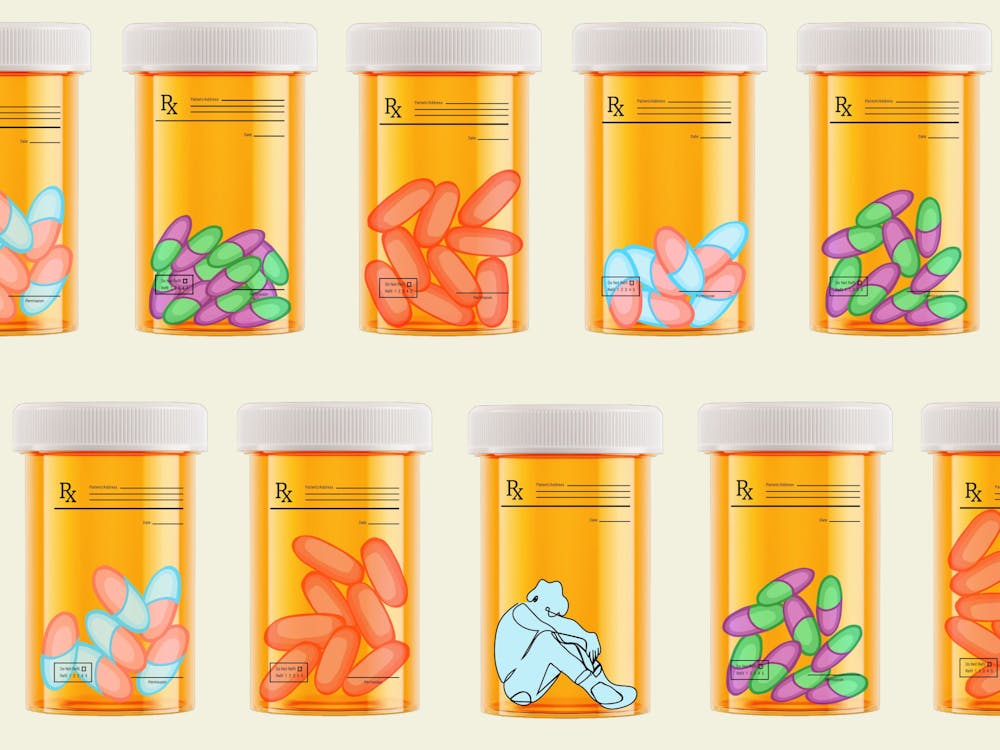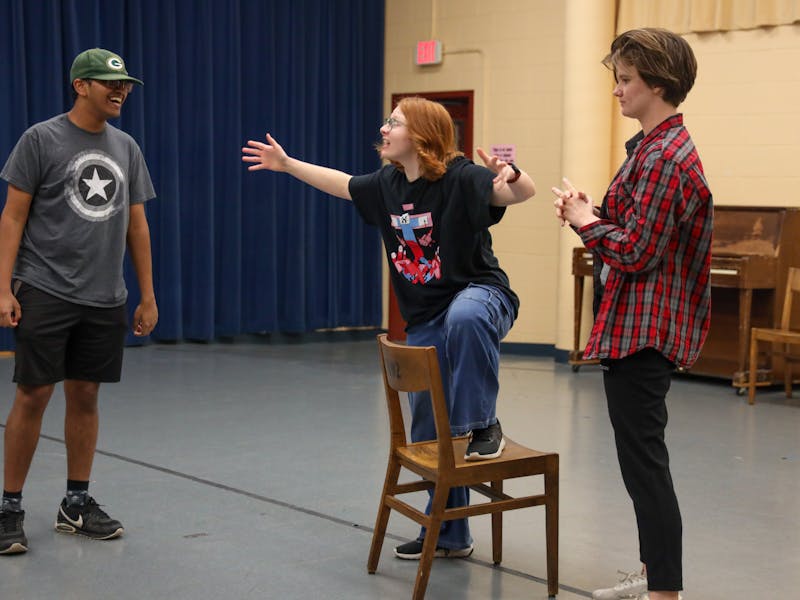In college, students are met with an abundance of choices—what classes to take, who to hang out with, what to eat each day and how to spend their free time. In an environment with so many options, choosing to start your journey of sobriety can seem daunting, but the Gamecock Recovery Program is here to help.
USC senior Suzanna Feeney has been involved with the Gamecock Recovery Program for nearly three years. When she joined in her sophomore year, she was open to attending meetings although she had no intention of getting sober.
“My dad died when I was three, and that kind of messed me up, and so by the time I was 14 I was smoking weed, drinking and stuff," Feeney said. “Around senior year of high school, I started tripping acid and doing psychedelics and stuff, and then I ended up experiencing psychosis.”
Drugs and other substances provided solace for Feeney as she navigated school and her emotions. They began acting as a substitute for different social or emotional relationships. Feeney struggled with the unpredictability of the people around her and sought comfort in the substances she used.
“I liked drugs because it was very concrete, I always knew what I was going to get," Feeney said. "Now I have been sober from everything for six months."
"I’ve finally reached a point where I don’t feel like I need drugs to replace friendships and emotional connections in my life. And a big part of that was Gamecock Recovery,” Feeney shared.
Gamecock Recovery’s mission is to provide a community of support for students who are in recovery, seeking recovery or impacted by addiction within their families. The goal of the program is to create an environment where students can feel comfortable and supported, while also not having to sacrifice their education.
Feeney recognizes that sobriety can be difficult, especially while on a college campus. However, Gamecock Recovery helps provide students with plenty of resources such as weekly gatherings, meditations and meetings with a recovery coach in order to combat these pressures and external temptations.
“I think the internal motivations are what's most important to stay sober and if you are not strong in your internal motivations, it can make the external availability [of substances] a problem," Feeney explained. "It hasn't been so much of a problem for me because I have better reasons for why I stay sober," she said. "I feel more secure in my sobriety these days.”
One of the motivations for Feeney’s sobriety has come from her family, who she has recently begun improving her relationship with. Her relationship with her sister in particular, who is only two years older than her, has improved immensely—an improvement that Feeney is grateful for and attributes to her dedication to sobriety.
“I didn’t talk to her for a solid year and a half," Feeney said. "I was able to spend this past Christmas with them, which was invaluable and now I can’t believe that I went so long without my sister in my life,” Feeney said.
An anonymous student in the Gamecock Recovery program struggled with addiction and mental health issues in high school and was directed to an inpatient rehabilitation center during their senior year. The student was then directed to Gamecock Recovery as a potential resource to help make the transition to college a little smoother.
“There's resources for anybody in all pathways, and even if you don't find what you're looking for in those resources, it's a great place to connect with people that might be going through similar things to you," the anonymous student said. "Building a community of that certainly can be very helpful for a lot of people.”
The student acknowledges that there are common misconceptions about sobriety, including the notion that people seeking sobriety are typically associated with negative traits. However, the student encourages people to rethink their bias.
“I think it’s important to note that everybody's rock bottom comes at a different spot," the student said. "There are a lot of people from all different walks of life that find their way into ruins and find their way to recovery, and it isn’t an entirely dependent upon you being a homeless, strung-out person in that space. There are people from everywhere including some of the highest places in the world that have had to seek help for those things, and that's completely normal and okay."
Aimee Hourigan is the director of the Substance Abuse and Prevention program at USC which is part of the student health and well-being unit on campus. The program is extremely comprehensive and has several well-rounded offerings, including community events, peer support, recovery coaching, mutual aid meetings and more.
“We really believe in being what we call an all pathways program, which means that no matter what you’re hoping to achieve or what you’re searching for in your relationship with substances that we can support you in that,” Hourigan said.
This flexibility means that Gamecock Recovery can be molded to meet the needs of the individual, regardless of where they are in their recovery journey. Additionally, three peer support meetings are offered through Gamecock Recovery, including the All Recovery meeting on Wednesdays, the Dharma Recovery meeting—a Buddhist-based mutual aid meeting that incorporates mindfulness and meditation—and a meeting called Boundaries and Self-Care.
As for the group’s future, Hourigan is looking forward to seeing the program continue to grow. No matter what stage of recovery you’re in, Gamecock Recovery supplies' resources are for everyone.
“We opened the Recovery Lounge last summer," Hourigan said. "It’s such a great space for them to just connect and hangout.”
“Our Recovery Ally Workshops [are] a way for faculty, staff, students to learn a little more about recovery," Hourigan said. "We talk about what language is better to use and how you can support folks, how you can make your events and parties more open for folks who are not using or in recovery."
Ultimately, Gamecock Recovery is helping to build a culture on campus that supports recovery and healthy choices, and fosters relationships and connections in and out of the program. Feeney is a living example of this, and has plans to graduate in the spring and eventually join the medical corp in the military. Feeney urges others to not give up on the prospect of recovery if they are seeking a change.
"[Sobriety] is a very gradual process and personally, I had to fail multiple times before I made as much progress as I've made now,” Feeney said. “I would say it is definitely worth it. And if you are able to give yourself grace and forgiveness and time and patience, you can see the other side, and it's totally a feeling you wouldn't give up for the world and it's free."
If you are interested in getting involved or seeking sobriety, the Gamecock Recovery Lounge is located at the Carolina Coliseum, Room 4001 and open from 8 a.m. to 5 p.m. Monday to Friday.
Contact Information:
Phone: 803-777-5781
Email: gamecockrecovery@sc.edu



